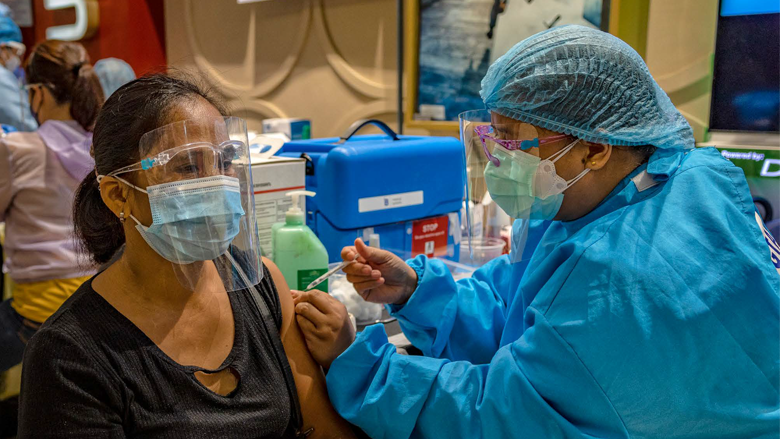
When the COVID-19 pandemic struck in 2020, the World Bank mounted the fastest and largest financial response in its history to help countries respond to, and recover from, the crisis. Working together, the global community brought the pandemic under control, but not before it led to nearly 7 million reported deaths9 and total expected economic losses estimated at nearly $14 trillion through the end of 2023.10 The recovery has been highly uneven, leaving behind some of the poorest countries.
As of June 30, 2023, the World Bank committed $270 billion of financial support to help public and private sector clients overcome the wide-ranging health and socio-economic impacts of the COVID-19 pandemic. The Bank’s response has helped to save lives, protect poor and vulnerable people, maintain education continuity, ensure sustainable business growth and job creation, and strengthen policies, institutions, and investments. The COVID-19 crisis has also spurred collective action to augment the existing global health security financing system and to mobilize additional resources to build health systems and strengthen capacity for pandemic prevention, preparedness, and response.
(Pages 22-29)
